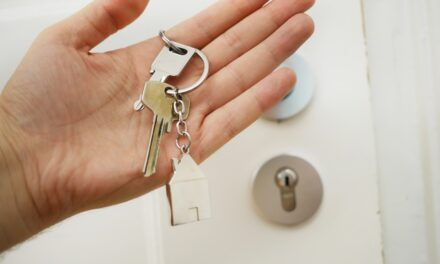The “F” word has never been mentioned in the news as much as it has in recent months: foreclosure. News of foreclosure paperwork snafus and moratoriums have recharged concerns regarding the effect of foreclosures on the sluggish economic recovery.
While anxieties are high over continuing trends in homeowner default and mounting foreclosures, a more pernicious aspect of the persistent foreclosure crisis is the hundreds of thousands of underwater California homeowners who are still making their mortgage payments.
Of the roughly 2.5 million underwater homeowners in California, an estimated 672,000 have loan-to-value ratios (LTVs) over 150%, with their average negative equity totaling $107,000. The LTV tipping point — the point at which homeowners are currently walking away from their underwater homes — is an LTV of 162%.
This means many California homeowners are hemorrhaging good money as they continue to support a grossly non-performing asset – their home. [For more information on the LTV tipping point, see the September 2010 first tuesday article, The LTV tipping point: when negative equity owners are most likely to strategically default.]
The insistence of these homeowners to pay on horribly devalued homes, which will only appreciate at 2% to 3% over the next decade or more, does not bode well for the success of the economic recovery. The wealth they are simply throwing away paying lenders interest would better serve everyone if it were converted to discretionary income by defaulting and then funneled back into the economy via consumer spending. [For further insight into when underwater homeowners can expect solvency, see the May 2010 first tuesday article, Cleaning up after the ruptured housing bubble.]
As it stands these stubborn underwater homeowners are holding onto a prayer rather than taking the cure (read: a strategic default) and seeing this economy through.
first tuesday take: Should substantially underwater California homeowners strategically default? Yes! Will a trend in timely strategic defaults bolster the hobbled economy? Yes! Will an increase in consumer spending, resulting from the liberation of wealth provided by a strategic default, strengthen the economic recovery? Maybe.
The notion that increased consumer spending will rectify an off-kilter economy is one borne out of recessions past when economic downturn resulted from an aggressive belt-tightening in the consumer population. The Great Recession, which has set us on this long, bumpy road to recovery, was the result of inflated asset prices and consumer spending gone wild. This created an unsustainable bubble which, of course, popped in a big way.
To argue for more consumer spending in this recovery period is to suggest the economy take the poison and call it the antidote. Just as business owners are becoming more efficient and running leaner, California homeowners would be wise to use the increased discretionary income generated by a strategic default discreetly and strategically.
A more restrained approach to consumer driven economic stimulus would greatly benefit the California real estate market for the long term. Rather than jumping out of the pot of outrageously unbalanced LTVs into the fire of unbridled consumer spending, California homeowners and investors must prepare themselves to make future real estate purchases and investments, thus contributing to sustainable growth in a truly organic economic recovery.
Real estate agents and brokers will be part of the new economic foundation, but only once they are willing to do their homework. [For more information on the future of the California real estate market, see the October 2010 first tuesday article, The demographics forging California’s real estate market: a study of forthcoming trends and opportunities — Part I.]
Re: “Faithful mortgage payments may hobble economy” from the Silicon Valley Mercury News












I agree with Gary. I don’t think I could ever recommend that someone strategically default. if they have the means to continue making the payments they agreed to during the boom. Maybe I’m old school, but it just doesn’t seem right. It seems like I am supposed to feel like a chump because I make my mortgage payments faithfully even though my home is not worth what it was in 2005. How about good old right and wrong? I agreed to make those payments, I was happy when my property had appreciated well beyond the $185,000 I paid for it, and I have not suffered any kind of hardship like a job loss or anything. This is my home, not just a “non-performing asset” in my eyes.
Something to think about is the disturbing fact that approx. 85-90% of the foreclosures I see in the SF Bay Area are due to the homeowners using their property as an ATM and borrowing their way over a 5-10 year period into foreclosure. The numbers are plain to see on sites like Tax Insight available on the MLS. Most people would still be just fine if they had not refinanced all their inflated equity away.
So, how do you justify walking from a loan that started at 200K and ended up at 700K and is now underwater? They took the $500K and either spent or invested the money, so what now? Maybe it’s time to think about going back to the days when “cash out re-fi’s” were not allowed? It certainly would have prevented alot of foreclosures.
Thanks for the great articles! Gary Wineroth, Pres. Northern Calif. Realty Investment Corp.